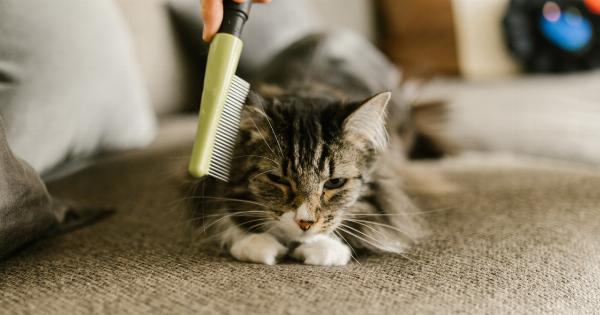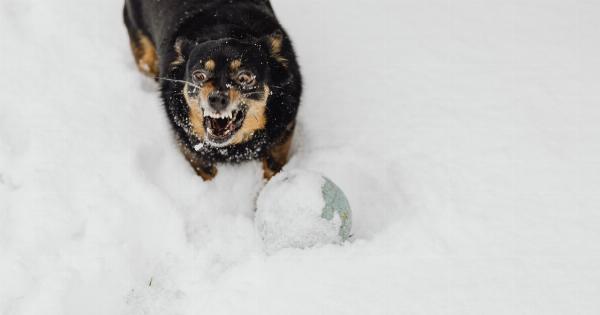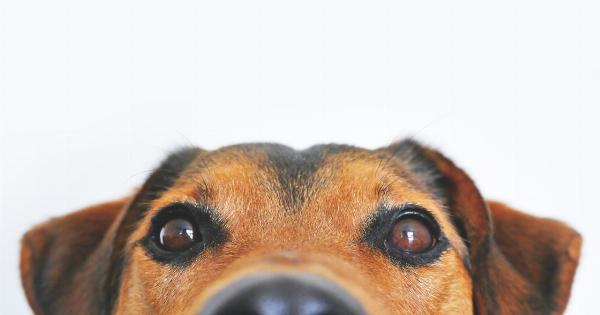As a pet owner, it is crucial to be aware of the potential pests that can harm your beloved furry friends. Pests can invade your home, garden, and even attach themselves to your pets, causing various health problems.
In this article, we will explore some common pests that pet owners should be cautious of and provide tips on how to protect your pets from these nuisances.
Fleas: The Tiny Bloodsuckers
Fleas are a common pest that can infest both indoor and outdoor areas. These tiny bloodsuckers are especially problematic for pets as they cause incessant itching, skin irritations, and can even transmit diseases.
Preventing flea infestations requires a multi-faceted approach, including regular grooming, vacuuming, and treating your pets with appropriate flea control products.
Ticks: A Silent Threat
Ticks are another pest that poses a significant risk to both pets and humans. These arachnids attach themselves to the skin of animals, where they feed on blood.
Besides causing discomfort and skin infections, ticks can transmit debilitating diseases such as Lyme disease and Rocky Mountain spotted fever. To protect your pets, inspect them regularly for ticks, especially after spending time outdoors, and use tick prevention products recommended by your veterinarian.
Mosquitoes: More Than Just a Nuisance
Mosquitoes are well-known for their annoying buzzing sound and itchy bites. However, they are also carriers of heartworm disease, which can be deadly for pets.
Heartworms are parasites that primarily affect dogs and cats, causing serious damage to their heart, lungs, and blood vessels. To prevent heartworm disease, consult with your veterinarian and administer monthly preventative medications.
Rodents: A Health Hazard
Rodents such as rats and mice not only cause damage to your home but also pose health risks for your pets.
These furry intruders carry diseases like leptospirosis and hantavirus, which can be transmitted to pets through direct contact or ingestion of contaminated food or water. To keep your pets safe, make sure to secure any possible points of entry and promptly address any signs of rodent infestations in and around your home.
Flies: The Unwanted Guests
Flies are not just pesky insects but can also be a source of annoyance and health problems for your pets. They carry various pathogens that can cause diseases such as diarrhea, vomiting, and even skin infections.
Protect your pets by ensuring proper sanitation in and around their living areas, using pet-safe fly repellents, and keeping food securely stored.
Ants: Petty Pests with a Bite
Ants may seem harmless, but some species can harm your pets. Fire ants, in particular, are notorious for their painful bites and stings that can cause discomfort, swelling, and severe allergic reactions.
Avoid ant infestations by keeping your home clean, removing food and water sources, and sealing any potential entry points.
Bed Bugs: Hitchhiking Parasites
Bed bugs are not just a nuisance for humans; they can also infest areas where your pets sleep. These tiny pests feed on blood and can cause itching, redness, and skin irritations.
If you suspect a bed bug infestation, thoroughly clean your pet’s bedding, vacuum the area, and consider contacting a professional pest control service.
Mites: The Invisible Troublemakers
Mites are microscopic pests that can cause a range of health problems in pets. Sarcoptic mange, for example, is caused by mites burrowing into the skin and can lead to intense itching and skin infections.
Ear mites, on the other hand, infest the ear canal, causing irritation and discomfort. Regular veterinary check-ups and proper hygiene practices can help prevent mite infestations in your pets.
Cockroaches: Disease Carriers
Cockroaches are not only unsightly but also potential carriers of diseases. They can transmit pathogens like Salmonella, which can cause serious illnesses in pets.
Keeping your home clean, properly storing pet food, and sealing any entry points can help prevent cockroach infestations and protect your pets from these disease-carrying pests.
Protecting Your Pets from Pests
Now that you are aware of the pest threats that can harm your pets, here are some essential tips to protect them:.
- Keep your home and surroundings clean and free of clutter to discourage pests from nesting and breeding.
- Vacuum and mop regularly to remove any potential hiding spots for pests.
- Properly store pet food in airtight containers to prevent attracting pests.
- Inspect your pets regularly for signs of fleas, ticks, or other pests. Use flea combs and consult with your veterinarian for the best prevention and treatment options.
- Ensure your pets are up to date on vaccinations and receive regular veterinary check-ups to detect any potential health issues caused by pests.
- Keep your yard well-maintained and eliminate any standing water sources that can attract mosquitoes.
- Seal any openings and cracks in your home to prevent rodents and other pests from entering.
- Use pet-safe pest control products and consult with professionals if necessary to address severe infestations.
- Provide a clean and comfortable sleeping area for your pets, regularly washing their bedding to prevent bed bug or mite infestations.
- Educate yourself about the potential pests in your area and their prevention methods, ensuring your pets’ well-being.
By implementing these preventive measures and staying vigilant, you can protect your pets from the harmful effects of pests. Remember, early detection, regular grooming, and prompt treatment are essential for keeping your pets pest-free and healthy.






























